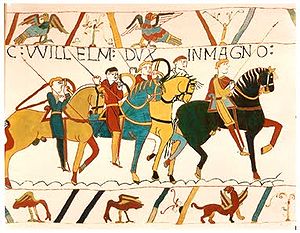
Wikipedia Selection for Schools

Welcome to Wikipedia for Schools! This selection of articles from Wikipedia matches the UK National Curriculum and can be used by school children around the world. 6000 articles, 26 million words and 50,000 images make Wikipedia for Schools bigger than Harry Potter, the Lord of the Rings and the Chronicles of Narnia put together!
Wikipedia is great, but it wasn’t designed with the National Curriculum in mind. And because anyone can edit it, articles sometimes get vandalised. That’s why we’ve put together this special collection to make learning as easy and safe as it can be. Here at SOS Children, we’ve checked all the articles, tidied them up a bit, and put them together by school subject.
SOS Children ( www.soschildrensvillages.org.uk) is a charity which works around the world to help children in need. As well as Wikipedia articles, we’ve collected pages from the SOS Children website, so you can learn more about the work we do in 125 countries around the world.
We would like to say thank you to the Wikimedia Foundation, the people who made the Wikipedia site. We would also like to thank the many people who have come together over the years to make Wikipedia what it is today.
You can download Wikipedia for Schools from www.sos-schools.org/wikipedia-for-schools. You can also get a copy on USB memory stick. Wikipedia for Schools is on the internet too, at schools-wikipedia.org.
The legal stuff: content is covered by disclaimers and licences.
How to Navigate
You can find an article by clicking on the school subject on the left of the screen. You can also choose from a list of all articles by clicking on Title Word Index.
Wikipedia for Schools also includes Portal Pages. These pages give a summary of a topic and list important articles inside it, and you can find them by choosing Portals from the menu on the left. You can use the indexes to find your way around but you might like to pick an article and click words in the text to other articles. For example, good starting places are Africa, The Solar System, Tsunami or Apple.
How the content was selected and checked
Topics we have selected include the very best of Wikipedia. We chose them because they form part of the UK National Curriculum, and because we thought they would be of interest to children. The selection is vast, but because we have prioritised subjects on the curriculum, not all topics are covered in the same level of detail. For this reason, the Welsh town of Llandudno receives more detail on Wikipedia for Schools than places given a similar level of attention on the original Wikipedia site.
We chose articles from a list ranked by importance and quality which was drawn up by project members. Then we sorted the articles based on relevance to children, and removed unsuitable topics. With the help of volunteers like Paul and Zaheera, SOS staff checked the articles, choosing those versions of articles free from vandalism, and then removing unsuitable sections. External links and references have been removed as it wasn’t feasible to check all of these.
Wikipedia’s policies state that content has to be verifiable and based on recognised and reliable sources. We haven’t included references and sources in this selection, but you can check them on the original Wikipedia site if you’d like to follow up on something you’ve read.
This selection is part of a larger collection on the original Wikipedia site, which we recommend for older children in particular. We have tried to remove links to material in articles outside Wikipedia for Schools, including images where we identified copyright issues. However, occasional “dead ends” may remain, particularly on content boxes which are “part of a series”.
Staff and volunteers at SOS have done their very best checking through the collection, but if you do see something which shouldn't be there do please let us know for our benefit and that of the millions of people who use Wikipedia for Schools. We’ve fixed all the mistakes we came across, while retaining a sneaky “easter egg” for our own entertainment!
If you find pieces of foreign text which appear as a string of question marks (“????”) or in a similar format, it may be because you do not have that language font installed on your computer. If this happens, please check the same article on the original Wikipedia site before getting in touch.
Please send any comments via email to: wikipedia-cd![]() soschildrensvillages.org.uk
soschildrensvillages.org.uk
SOS Children ( www.soschildrensvillages.org.uk) is the world’s largest orphan charity. In 125 countries worldwide, donors and child sponsors provide a loving family for more than 62,000 children in over 500 Children’s Villages. We place a high priority on education, and a large part of our community work is devoted to bringing better schooling to children from deprived backgrounds. In the online world, Wikipedia for Schools is just one of our many educational resources. Our SOS Schools site contains a wealth of information about our schools around the world, as well as a selection of classroom resources. From there, you can access Our Africa, a unique online experience which brings you a child’s-eye view on what it’s like to grow up across the continent.


